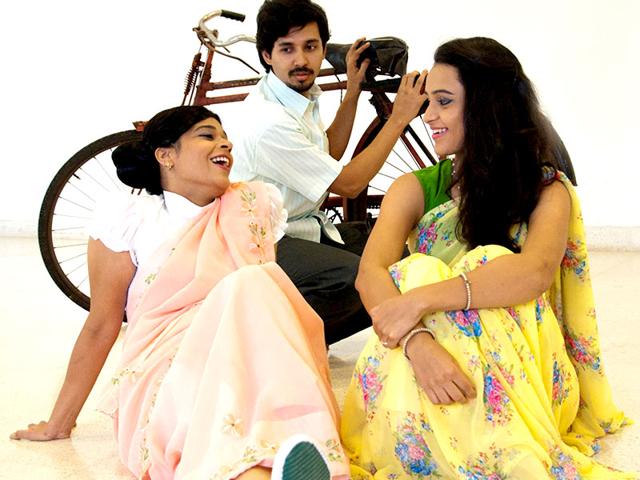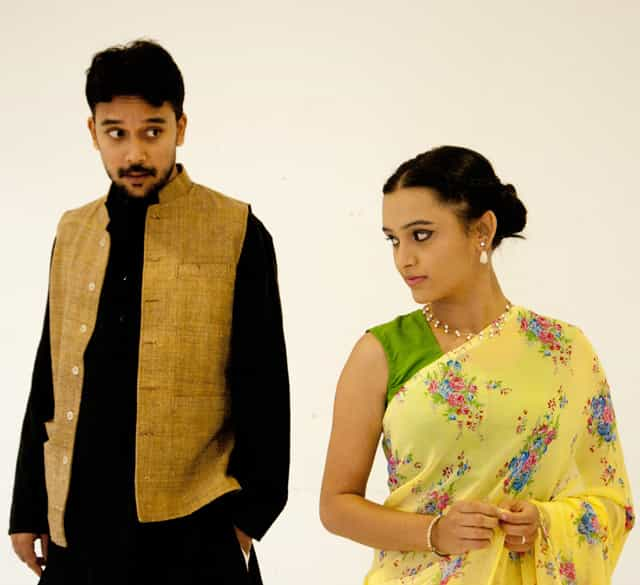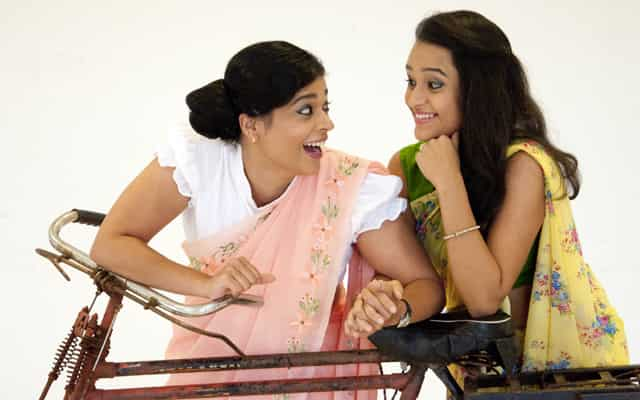Vijay Tendulkar's 34-year-old LGBT play gets English version
The English retelling of the controversial Marathi play, Mitrachi Goshta, on LGBT issues, is an ode to Vijay Tendulkar, whose works transcend time and social boundaries
In 1981, late playwright Vijay Tendulkar wrote a love ballad of sorts. Set in the pre-Independence era, in a college campus in Poona (now Pune), it had a seemingly conventional boy-meets-girl build-up. In reality, it was a love triangle between Bapu, a shy boy battling a strong sense of inadequacy, Mitra, an independent girl with a secret that eventually resulted in her downfall, and Nama, Mitra’s graceful-yet-treacherous love interest. Tendulkar weaved in complex characters and intricate plotlines that broke the taboo on lesbian identities three decades ago. A play ahead of its time, it was intense, progressive and highly controversial. Mitrachi Goshta premiered in 1981, and was enacted by leading Marathi stalwarts of the time, including Vinay Apte, Rohini Hattangadi and Ujwala Jog.

It was the complexity of Tendulkar’s narrative and the strength of the subject that attracted actor-director Akash Khurana to Mitrachi Goshta. Titled A Friend’s Story, this English translation will premiere this weekend. “I have always been fascinated by the quality of Tendulkar’s writing. It is quite extraordinary. In this particular play, his characters are strong, yet extremely vulnerable. It is one of the most challenging plays I have undertaken,” says Khurana.

He first came across Tendulkar’s works in 1987 when he directed Mat Yaad Dila, the Hindi version of Tendulkar’s Ashi Pakhare Yeti. “Mitrachi Gosht had not received its due appreciation. Maybe it was because of the discomfort that it created within the audience of the time,” says Khurana, adding that the growing relevance of the theme in today’s time is what inspired him to revive the play.
The gradual unravelling of Mitra’s sexuality, her confusion regarding her sexual identity, her violent attraction towards Nama and the blossoming friendship between her and Bapu form the central points of the play.
“He didn’t take the easy way out. He chose not to represent homosexuality through men. He deliberately chose women. So, if you see, it was a multifold commentary, that extended beyond homosexuality and even spoke about the liberation of women in that era,” says Deepa Gahlot, head of theatre and film at the National Centre for the Performing Arts (NCPA).
Speaking on the acceptability of the Lesbian Gay Bisexual and Transgender (LGBT) theme in today’s scenario Khurana says, “There has always been and will be a conservative section in the society who won’t appreciate the play. That bit about our society hasn’t changed over the years. But the subject is spoken about more liberally now and the struggles of the LGBT community are relevant today.”
Mitrachi Goshta is one of the first plays that openly dealt with the LGBT theme. Vijay Tendulkar’s other works were also path-breaking and included themes such as pre-marital sex and childbirth (in Shrimanta, 1956), prostitution (in Kamala, 1981), and the exploitative nature of political power (in Ghashiram Kotwal, 1976).

Watch out
A Friend’s Story is the premiering play for NCPA’s Classics Series — an effort to revive some of the greatest folk and traditional plays from regional theatre cultures, by staging them in English. “Plays, no matter how popular die out over a period of time. They need to be revived for every generation, for them to understand their cultural history. We hope to stage the translations of a few Sanskrit plays as well,” says Gahlot.
Don’t miss
A Friend’s Story will be staged on September 5 and September 6, 7pm onward
Experimental Theatre, NCPA, Nariman Point
Call: 2282 4567
Tickets: Rs 200 onward, available on bookmyshow.com/plays
(The writer tweets as @poorvajoshi93)





